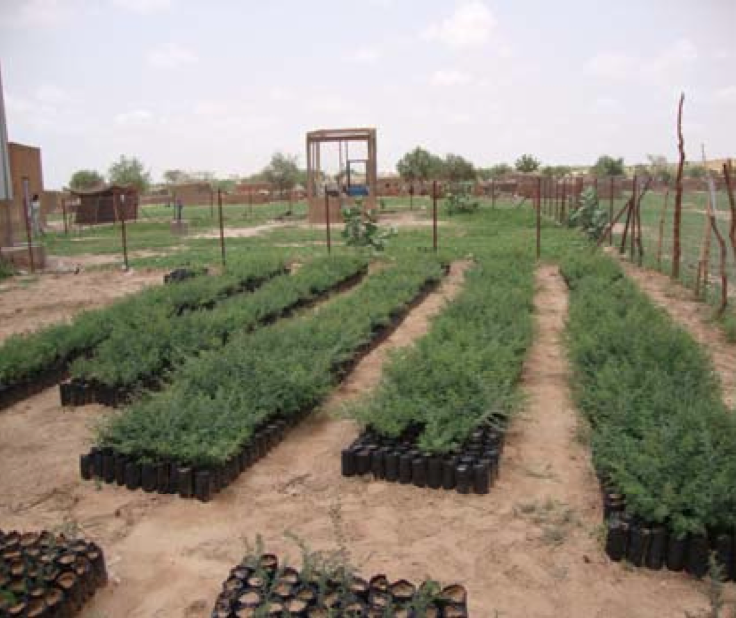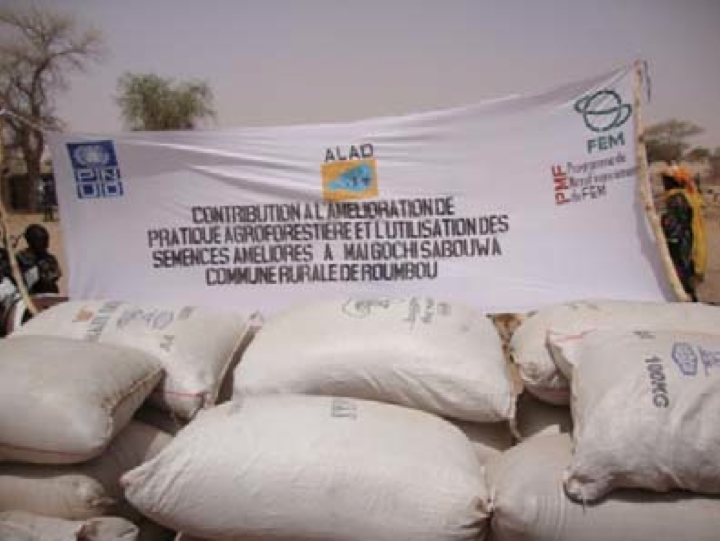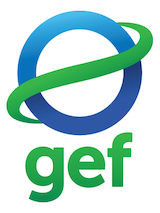CBA Niger: Improving Agro-Forestry and Providing Better Seeds to the Community of Maigochi Saboua, Roumbou (ALAD)
Project Overview
This project focuses on the village of Maigochi Saboua in Niger’s Dakoro district. The population of approximately 7,564 people participates primarily in agriculture, breeding, crafts and trading. Agriculture is the primary driver of economic growth with 80% of the population relying on it as means of income. The Tarka Valley is the main ecosystem in the area, and communities depend on it to provide natural resources such as wood, water and fertile lowland fields. In the recent years, the valley has experienced significant changes due to multiple periods of drought, increased pressure from farmers and shepherds, and the detrimental effects of climate change.
This Community-Based Adaptation project aims at improving agro-forestry practices in the community by using assisted natural regeneration (ANR), planting trees, carrying out awareness campaigns, and promoting sustainable agricultural practices that use improved seeds to adapt to climate change and variability. The project was formulated through a participatory process carried out by the project's NGO partner, ALAD, and involving a variety of stakeholders.
* This project is part of Niger's Community-Based Adaptation portfolio. *
Project Details
Maigochi Saboua is a village of approximately 7,564 people in Niger’s Dakoro district, in the Centre-South of the country. The main economic activities are agriculture, breeding, crafts and trading. Agriculture is considered the primary driver of economic growth, as it employs over 80% of the local population.
Farming is mainly carried out by Haoussa peoples, while Peulh, and Touareg peoples are largely agro-herders. The Tarka Valley is the main ecosystem in the area. Communities depend on it to provide natural resources such as wood, water and fertile lowland fields. In the last few years, it has experienced significant changes due to multiple periods of drought, increased pressure from farmers and shepherds, and from the detrimental effects of climate change.
This UNDP/GEF Community-Based Adaptation project improves agro-forestry practices in the community by using assisted natural regeneration (ANR), planting trees, carrying out awareness campaigns, and promoting sustainable agricultural practices that use improved seeds to adapt to climate change and variability. The project was formulated through a participatory process carried out by the NGO ALAD and involving a variety of stakeholders.
Specifically, the project increases the resilience of the community and its ecosystem through a set of outcomes. A village nursery will be established, alongside the planting of 10,000 Acacia albida and Acacia senegal species in the fields of at least 60 farm managers. An improved seed bank will be opened to help boost agricultural yields, and incomes of vulnerable women will be improved through training for backyard farming of sheep and goats. ANR will carry out trainings and workshops on sustainable agriculture and forestry techniques, as well as appropriate natural resource management. Finally, the project will foster increased awareness of observed and forecasted climate change impacts.
This project helps the communities shield themselves from chronic food insecurity by maximizing their agricultural production. It also improves the resilience of Tarka Valley ecosystems to the adverse effects of climate change.
Key Results and Outputs
- Establishing one village nursery
- Planting 10,000 Acacia albida and Acacia senegal species in the fields of at least 60 farm managers
- Opening an improved seed bank to help boost agricultural yields
- Improving the incomes of vulnerable women through backyard farming of sheep and goats
- Though ANR, improving agriculture and forestry techniques and the management of natural resources
- Increasing awareness of observed and forecasted climate change impacts
Reports and Publications
Brochures, Posters, Communications Products
Annual Reports
Project Brief / Fact Sheet
Monitoring and Evaluation
Monitoring and evaluation for community-based adaptation is a new field, and the CBA project is piloting innovative approaches to evaluating the success of locally-driven adaptation projects, and generating lessons to inform ongoing practice.
Key considerations in M&E for CBA include:
- Grounding M&E in the local context: M&E for CBA should avoid overly rigid frameworks, recognizing community heterogeneity and maintaining local relevance
- Capturing global lessons from local projects: CBA projects are highly contextualized, but lessons generated should be relevant to stakeholders globally
- Incorporation of both quantitative and qualitative indicators: to ground projects in tangible changes that can be objectively evaluated, and to capture lessons and case studies for global dissemination
To these ends, the CBA project uses three indicator systems: the Vulnerability Reduction Assessment, the Small Grants Programme Impact Assessment System, and the UNDP Climate Change Adaptation Indicator Framework.
The Vulnerability Reduction Assessment (VRA)
The VRA is a question-based approach with the following aims:
- To make M&E responsive to community priorities
- To use M&E to make projects more accountable to local priorities
- To make M&E capture community ideas and local knowledge
- To gather community-level feedback to guide ongoing project management
- To generate qualitative information
- To capture lessons on specific issues within community-based adaptation
- To generate case studies highlighting adaptation projects
The VRA follows UNDP's Adaptation Policy Framework, and is measured in a series of meetings with local community stakeholders. In these meetings, locally-tailored questions based on standard VRA questions/indicators are posed, and the community assigns a numerical score on a 1-10 scale for each question. Progress is evaluated through changes in scores over the course of implementation, as well as through qualitative data collected in community discussions surrounding the exercise.
UNDP has developed a Users Guide to the VRA (Espanol) (Francais) as a tool to assist practitioners to conceptualize and execute VRA measurements in the context of CBA projects.
The SGP Impact Assessment System (IAS)
The CBA, being a project of the GEF Strategic Priority on Adaptation, aims to increase the resilience of ecosystems and communities to the impacts of climate change, generating global environmental benefits, and increasing their resilience in the face of climate change impacts. To this end, the CBA projects use the SGP's impact assessment system for monitoring achievements in GEF focal areas (focusing primarily on biodiversity and sustainable land management).
The IAS is composed of a number of quantitative indicators which track biophysical ecosystem indicators, as well as policy impact, capacity development and awareness-building.
UNDP Climate Change Adaptation Indicator Framework
CBA projects also track quantitative indicators from UNDP's adaptation indicator framework, corresponding to the thematic area on natural resources management. More information on UNDP's indicator framework can be found on the UNDP climate change adaptation monitoring and evaluation website.
* This description applies to all projects implemented through UNDP's Community-Based Adaptation programme. Specific details on this project's M&E will be included here as they become available. *






